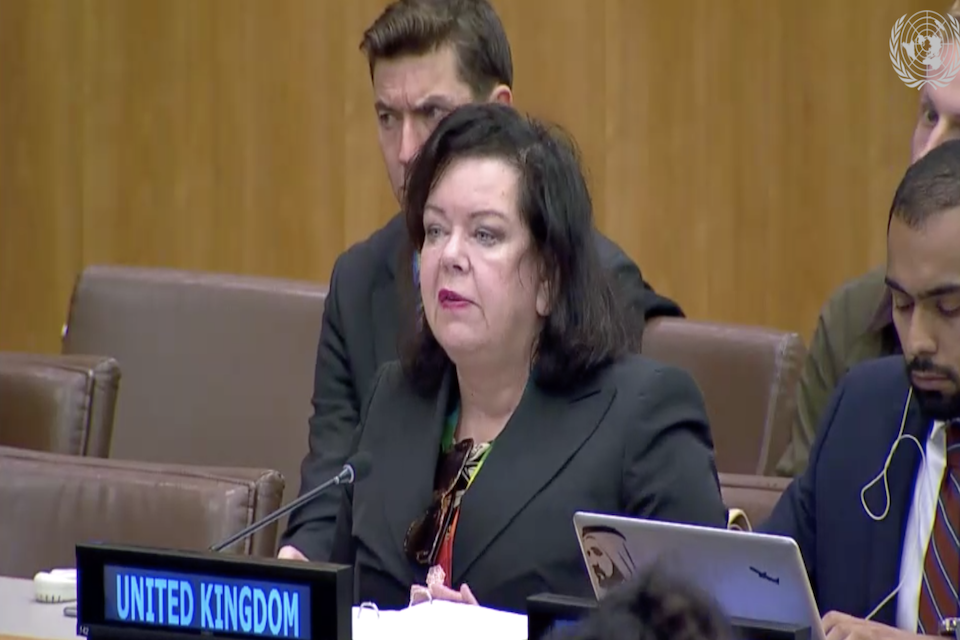Statement on UK commitment to robustly defend human rights at the UN and beyond
Human Rights national statement by Ambassador Karen Pierce, UK Permanent Representative to the UN at the UN Third Committee.

The UK associates itself with the statement made by the representative of the EU on behalf of EU member states. Allow me to set out our national approach at this time.
The UK Government’s policy is that the UK will leave the EU on 31 October. After we have left, we will continue to work closely with the EU in pursuit of our shared interests and values, and will remain committed to human rights and to the Rules Based International System.
Mr Chair, 74 years ago the first UN Member States signed the UN Charter, determined to save succeeding generations from the scourge of war and reaffirming the dignity of human beings. One of the very first tasks of this Committee, set up specifically to focus on human rights, was to agree the Universal Declaration of Human Rights.
Human rights, and the idea that the relationship between people and states is not one of subservient obedience, but one where the State has obligations to the individual, are core to everything the United Nations stands for. As the Foreign Secretary has made clear, at the UK’s core is a strong moral anchor. Make no mistake; we will robustly defend human rights here at the UN and beyond.
Mr Chair, there are three priorities that I would like to focus on: i) Freedom of religion or belief; ii) Gender equality and the rights of LGBT people; iii) Media freedom and civil society space.
Firstly, the UK remains resolutely committed to championing freedom of religion or belief. Building mutual understanding and respect between communities is essential to fighting intolerance. We will never stand by while individuals are persecuted, designated as ‘extremists’, or arbitrarily detained, because of their religion or ethnicity.
Mr Chair, be in no doubt that we will continue to speak up for the rights of religious minorities across the world.
Secondly, the UK will continue to advance gender equality and vigorously defend the rights of LGBT people.
Let me be clear that attempts to roll back hard-won gains on access to sexual and reproductive health are a shameful attack on women’s rights. It is harrowing that 23,000 women die each year from dangerous backstreet abortions. Meanwhile, heinous acts like rape and sexual violence proliferate as weapons of war.
That is why, next month, the UK will host a conference on preventing sexual violence in conflict with the objective of strengthening justice for survivors and holding perpetrators to account.
Equally, we cannot stand silent while people face persecution because of their sexual orientation or gender identity. All too often, state authorities allow the perpetrators of such hate crimes to escape justice. No one should suffer discrimination because of whom they love.
Finally, a rich civil society is vital to safeguard our human rights. To this end, media freedom is essential. Journalists must hold the powerful to account. Never should media workers live in fear for their lives for doing their job. We encourage those Member States who have not yet signed the Media Freedom Pledge to do so, and join the Global Coalition to fight the curtailment of media freedom.
All too often, those who protect human rights face threats because of their work. While states introduce increasingly restrictive legislation to shrink civil society space. We are committed to championing civil society, both in the field and in discussions at the UN. That is why we are pleased to announce today the UK’s candidacy for the NGO Committee, which plays a vital role in promoting civil society at the UN.
Mr Chair, we can do better, and we must. States must fulfil their commitments now, not at a far off date when some political, economic, or development stars might align.